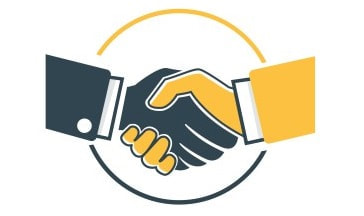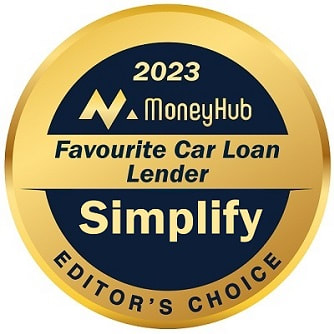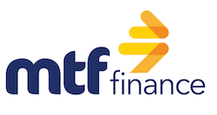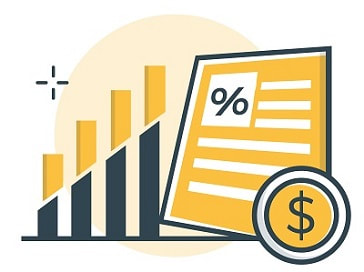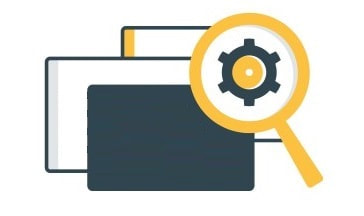Car Dealership Finance vs Bank and Specialist Lender Car Loans
Our guide explains the pros and cons of financing directly with the car dealer vs applying with a bank or specialist lender.
Updated 20 July 2024
Know this first:
Our guide covers:
Our view is simple:
Looking for the best car finance offers? Our dedicated car finance guide has you covered.
Warning: Add-on Insurances: Car Lenders may offer you Mechanical Breakdown Insurance (MBI), Guaranteed Asset Protection Insurance (GAP) and/or Payment Protection Insurance (PPI). We do not believe these policies offer value-for-money or cost-effective protection for most people. Our guides to both of these insurance options explain what you need to know. You may be encouraged to buy MBI, GAP and/or PPI insurance, but they are not compulsory with any car loan. Our view is that buying add-on insurance makes a car loan more expensive.
- Many car dealerships offering financing deals on-charge car buyers 'brokerage' and 'introductory' fees.
- These fees are often buried in the finance paperwork, which can be hard to find given the excitement and priority of buying a car.
- Many car dealers also offer Mechanical Breakdown Insurance (MBI) and/or Guaranteed Asset Protection Insurance (GAP), both are policies we have reservations about and always make a car loan more expensive.
- As this Stuff.co.nz article reported in 2020, if you contact the third party lender directly, you'll save these fees (which can be as high as $1,000 in total, and more by the time you've paid interest on them). If the car dealership adds a 'margin' to the interest rate, even 1% or 2% p.a., this can significantly add up on a $10,000 loan over 3 or 5 years.
- Be aware: It's not uncommon for car dealerships to have an affiliation with an insurance company and finance company. The dealership earns a commission when you sign up to their 'deal'. They may also offer 'mechanical breakdown insurance', which sounds responsible in principal but can be grossly overpriced.
- We believe that for some second-hand cars, there's more money in selling car finance than the car by itself - the commissions and fees can add up while the car's sticker price remains the same. This almost always makes the buyer worse off.
- You always have two main options when financing a car – dealership financing and a car loan from a specialised lender or bank. Both options have the same outcome – you pay interest on a loan, but how you get the loan and what you pay differs, and the savings from avoiding the traps can be significant.
Our guide covers:
- Dealerships vs Banks and Specialist Lenders in a Nutshell
- Pros and Cons of Dealership Financing, Bank and Specialist Lenders
- Dealerships vs Banks and Specialist Lenders - Frequently Asked Questions
Our view is simple:
- Before visiting any car dealer, consider arranging financing first via a specialist lender or a bank. Lenders will assess your affordability and pre-approve you, so you know exactly what your budget is before you go car hunting. Car loan brokers position the best offers whereas banks or car dealerships will give you one offer - and it may not be close to the best.
- If you prefer to work with the dealer directly to arrange finance, keep in mind that every fee is negotiable and you will, almost certainly, pay more than you would have you dealt with the underlying lender directly. There is one exception - deals and discounted financing offered by a manufacturer.
- Examples include Toyota Finance, Mazda Finance (various offers) and Honda Finance, among others. Such offers still, in most cases, charge fees, including an 'Establishment Fee' and ongoing monthly 'Administration Fee'. You can see an example of these fees below:
Looking for the best car finance offers? Our dedicated car finance guide has you covered.
Warning: Add-on Insurances: Car Lenders may offer you Mechanical Breakdown Insurance (MBI), Guaranteed Asset Protection Insurance (GAP) and/or Payment Protection Insurance (PPI). We do not believe these policies offer value-for-money or cost-effective protection for most people. Our guides to both of these insurance options explain what you need to know. You may be encouraged to buy MBI, GAP and/or PPI insurance, but they are not compulsory with any car loan. Our view is that buying add-on insurance makes a car loan more expensive.
|
Christopher Walsh
MoneyHub Founder |
MoneyHub's Top Car Finance Options - Avoid high interest rates and fees with trusted lenders.
Our Trusted and Affordable Car Lenders Committed to Fast Quotes:
|
Dealerships vs Banks and Specialist Lenders in a Nutshell
Car financing is usually provided by two main options:
1. Dealer financing, as the name suggests, is from the dealer, but they don't advance you the money. Instead, you go through the dealer, but a stand-alone finance company manages your repayments.
2. Car financing through a bank is a traditional loan. Rather than going through the dealership, you secure and close the loan with your bank, receiving a lump sum of money before you buy the car. You use the money to buy the car (you’re now a cash buyer) and make payments to your bank as stated in the loan. Our car loans guide has the latest offers and must-know tips to save money. Unlike dealer financing, car financing through a bank doesn't have any make or model restrictions.
1. Dealer financing, as the name suggests, is from the dealer, but they don't advance you the money. Instead, you go through the dealer, but a stand-alone finance company manages your repayments.
2. Car financing through a bank is a traditional loan. Rather than going through the dealership, you secure and close the loan with your bank, receiving a lump sum of money before you buy the car. You use the money to buy the car (you’re now a cash buyer) and make payments to your bank as stated in the loan. Our car loans guide has the latest offers and must-know tips to save money. Unlike dealer financing, car financing through a bank doesn't have any make or model restrictions.
Is it Better to Finance Through a Car Dealership or a Bank?
We believe it all depends on your credit profile and what you're buying, as we outline below:
1. Buying a new car directly from a dealer
2. Buying a used car from a dealer or using a private sale
1. Buying a new car directly from a dealer
- If you're a safe bet and can easily afford repayments, dealer finance will usually offer the best deal. You may get an interest-free period, a low-interest rate or a combination of the both.
- Be aware that dealership finance can have the most requirements. For example, you must buy a car that's eligible for financing. Toyota Finance, for example, only permits you to buy Toyota.
- The interest rates can vary based on the length of the loan. For example, the longer the loan, the higher the interest rate and overall cost of borrowing.
- Dealer finance usually has more stringent underwriting requirements too. You may need a higher credit score or lower debt ratio to qualify. Your dealer can help you determine if you are eligible.
- Bank financing interest rates can be attractive, but it rarely competes with dealer offers given the tie-in with the manufacturer and the incentive the dealership has to make a sale.
2. Buying a used car from a dealer or using a private sale
- Looking beyond dealership finance will likely steer you towards much better car finance offers. As you're not tied to one provider (i.e. the dealership), you have unlimited flexibility to compare car loan deals from banks and speciality lenders.
- Because there's no urgency (i.e. you're not signing up for a car loan while shopping for a car), you can find the most suitable lender. If you have a perfect (or less than perfect) credit history, there will be a tailored offer for you.
- You can use bank or car loan financing for just about any car purchase, which covers you for both a dealer and a private individual.
- Examples of top-rated bank and speciality lenders include Harmoney and First Credit Union.
Why do dealerships want you to finance a car through them?
- Dealers want you to pursue financing through them because they earn a commission on the deal. Not only do they make money on the selling the car, but the financing pays them upfront as well, in many cases, a trail commission when you make repayments.
- Before making any decision, it’s in your best interest to look at both options – price them out to determine who offers the best deal, not just on your monthly payment, but over the life of the loan. This must be fully disclosed to you, so, for example, if the total cost of option A is $10,400 and option B is $11,800, option A is cheaper even if the weekly payments are higher.
Pros and Cons of Dealership Financing, Bank and Specialist Lenders
To properly evaluate your options, we outline the pros and cons of both financing options.
The Pros and Cons of Dealership Financing
Pros:
Cons:
- You can do everything in one place. You negotiate the price of the car and financing and only deal with the dealer when buying the car, so it's something of a 'one-stop-shop' experience.
- You may ask for a balloon payment. This lowers your monthly payments but puts you on the hook for a large lump sum at the end of the term. Balloon payments are common with dealership financing, but rare with bank and speciality lending.
- You may have more room to negotiate the car’s price since you’re getting financing through the dealership and they make money that way.
Cons:
- The deal is, unlikely, to be the best in the market unless you've already compared what's on offer and/or negotiate well. You may be forced to pay lender fees that are added to the balance of your loan.
- If you don’t have good or great credit, you may not qualify for a loan. If you're buying a new car, interest rates on dealership financing are usually very low, so they are reserved for strong-credit customers.
- Your financing is limited to the car model or dealership, so your choices are limited if you want to keep comparing cars.
- If you agree to a balloon payment, it could be unaffordable and/or put you in a financial bind when it’s due.
The Pros and Cons of Bank or Speciality Car Lenders
Pros:
Cons:
- You have more options for loans and interest rates, which makes it easier to shop around.
- You don’t have to worry about a balloon payment; banks and speciality lenders calculate your repayments to clear your loan altogether, not leave a large balance to clear.
- You can finance any type of car (new or used) and any make or model.
Cons:
- Bank interest rates can be higher than specialist dealership financing, such as that offered by the likes of Toyota Finance, Mazda Finance and Honda Finance, among others.
Dealerships vs Banks and Specialist Lenders - Frequently Asked Questions
Every car buyer has a specific affordability profile, and what finance deal is best for them is unique. Our questions below outline the most commonly asked queries relevant to prospective car buyers.
Do all dealers offer dealer finance?
Not always. It depends on the make and model of cars they sell. It also depends if they signed up with the financing company to offer dealer financing. While most car salespeople will offer finance, as it can prove to be lucrative, it's not always the case. Our view is that dealer finance is one option, but in many cases, it's not the best, and therefore a full comparison is always required to find the best deal.
What is a trade-in option?
If you currently own a car, you may trade it in at the dealer. Keep in mind, you may get less money for the car by trading it in compared to selling it privately, but some people like the convenience. A trade-in may give you more negotiating power including on the financing since it’s like making a down payment on the car.
What is a balloon payment?
Dealer financing may involve a "balloon payment". Be careful because it’s a large sum of money you owe, due at the end of the term. When you are looking at your options, dealer financing may seem like a great idea, especially with the lower monthly repayments because of the balloon payment. Be careful - the balloon payment may be unaffordable as you're on the hook for a large sum of money. If you don’t prepare yourself, it could be financially destructive.
What to do: Before signing up to any car finance deal, understand if there is a balloon payment, and if so, how much it will be.
What to do: Before signing up to any car finance deal, understand if there is a balloon payment, and if so, how much it will be.
Can you buy a car by extending your mortgage?
Some people don’t want a car loan and would rather use their home’s equity. This may be possible with a mortgage extension or home equity loan. Since home loan rates are usually fairly low compared to other personal loan options, many people prefer it.
Important: When you add the cost of a car to your mortgage, you increase your mortgage payment. If you keep the mortgage for many years, you stretch out the interest payments, which means you may pay more for the car in the long run than you would with a short-term car loan.
Important: When you add the cost of a car to your mortgage, you increase your mortgage payment. If you keep the mortgage for many years, you stretch out the interest payments, which means you may pay more for the car in the long run than you would with a short-term car loan.
How do you find the best interest rate on a car loan?
We suggest obtaining at least three quotes for car loans. Even if you intend to use dealer financing, look at your other options. Look not only at the interest rates, but the overall loan fees and the total cost of the loan, including any balloon payment requirements.
Can you break a dealer finance agreement early?
Like most loans, there may be a break fee or penalty if you break your dealer finance agreement early. The finance company relies on the money your loan is intended to bring in. If you cancel the loan early (pay it off early), you may be subjected to a financial penalty to make up the difference or at least some of it. To know for sure, ask up front when negotiating the financing. Our car finance comparison outlines the early repayment terms for each provider.
What’s the difference between secured and unsecured car loans?
If you get financing from your bank, you may apply for a secured or unsecured loan. A secured loan uses the car as collateral. If you default on the debt, the lender can take possession of the car. These loans usually have lower interest rates because of the guarantee the collateral provides.
If you apply for an unsecured loan, you don’t put the car up as collateral. While this is acceptable, it also means you’ll pay higher interest rates. The lender, whether it is a bank or dealer finance, charge higher interest to compensate for the risk that the lack of collateral provides.
If you apply for an unsecured loan, you don’t put the car up as collateral. While this is acceptable, it also means you’ll pay higher interest rates. The lender, whether it is a bank or dealer finance, charge higher interest to compensate for the risk that the lack of collateral provides.
How long are the typical dealer financing terms?
Most dealer financing loans have a term of three to five years. That means if you have a balloon payment loan, you’ll need the lump sum in as little as three years.
How long is a typical bank's car financing term?
The usual term is three to five years for a secured loan. Generally, the shorter the term, the lower the interest rate lenders offer.
Which type of car financing is right for you?
Everyone has different circumstances, but in general, if you’re buying a new car and have a decent down payment, dealer financing is an attractive option. If you are buying a used car or don’t have a decent down payment, you may find more options with bank financing.
|
Christopher Walsh
MoneyHub Founder |
MoneyHub's Top Car Finance Options - Avoid high interest rates and fees with trusted lenders.
Our Trusted and Affordable Car Lenders Committed to Fast Quotes:
|
Related Guides:
Best Car Finance
Popular Comparisons
Popular Guides
Car Finance Company Reviews:
Car Loan Insurance
Best Car Finance
Popular Comparisons
Popular Guides
- How to Save for a Car
- Car Loans and Collateral
- Bad Credit Car Loans
- Balloon Payments
- How to Refinance Your Car Loan
- Simplify Loans Review
- Car Loan Refinance Calculator
Car Finance Company Reviews:
- AA Money Review
- Better Finance Review
- Kiwi Car Loans Review
- MTF Finance Review
- Simplify Loans Review
- Car Loan Brokers vs Direct Car Finance Companies
Car Loan Insurance

